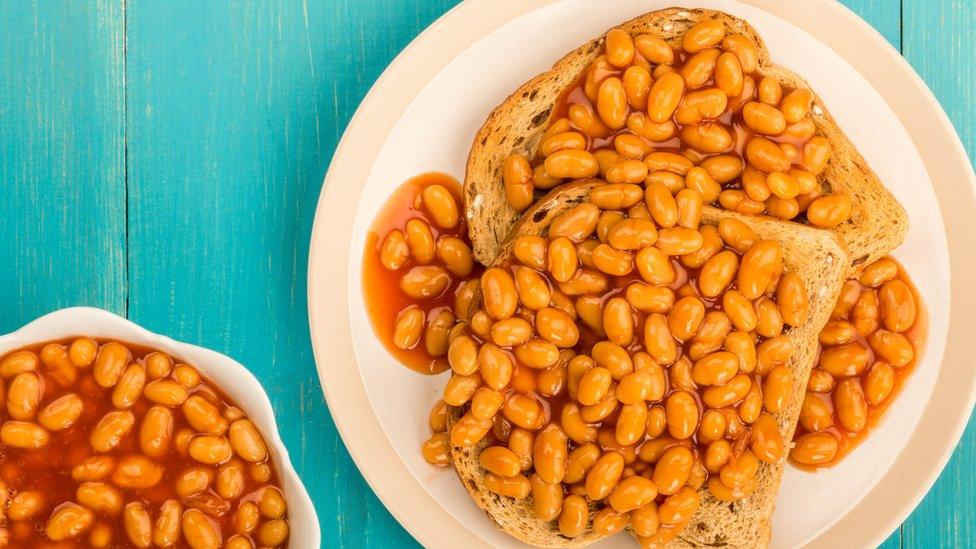First British-grown baked beans get canned in Lincolnshire
- Published
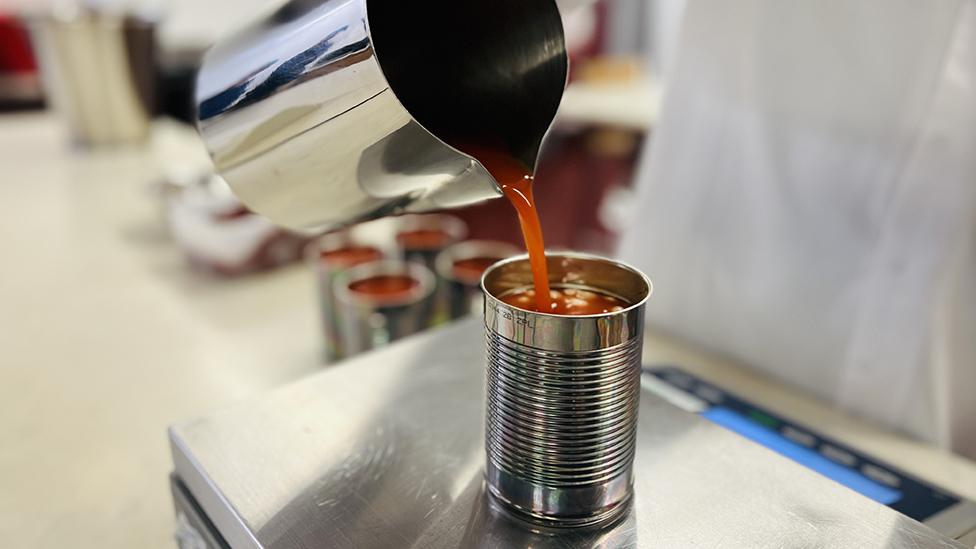
A test tinning of the beans was carried out at the Princes factory in Spalding
The first ever commercial crop of British-grown baked beans have been canned in a Lincolnshire factory.
Specially bred haricot beans designed to grow in the UK climate were harvested in September at a farm in the county.
It is hoped that the baked bean breakthrough will reduce the reliance on imports.
More than two million tins are eaten every day, with all the beans grown in the US, Canada, Ethiopia and China.
The project was developed by scientists at the University of Warwick, who took 12 years to produce the seeds.
A smaller-scale trial to grow them in 2022 failed due to the summer heatwave.
Some health food brands have attempted to market British-grown broad beans as "baked beans", but they have lacked mass appeal due to the difference in taste to haricots.
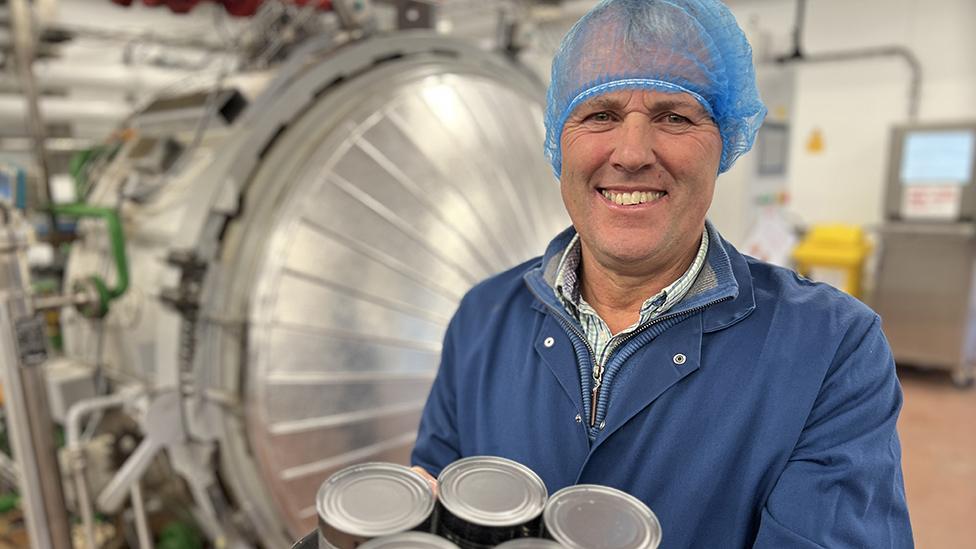
Farmer Andrew Ward described the production of the finished baked beans as "an absolute milestone"
Farmer Andrew Ward who grew the beans on his farm in Leadenham, watched them being tinned at the Princes factory in Spalding.
He said it was "an absolute milestone".
"As a nation, we import too much food," he said.
"To be able to produce something that we consume in such great quantities in this country, it's just unbelievable."
The canning is a test run and the beans will not be available in supermarkets just yet.
Most of this year's harvest will be used as seeds for the next season's planting to increase stocks of the plants
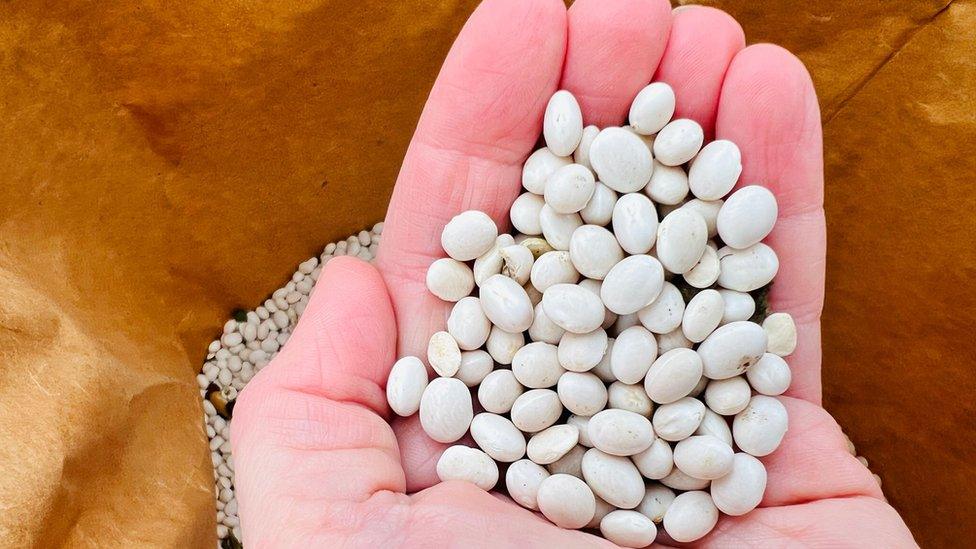
The haricot beans were bred by scientists at the University of Warwick
Princes produce 264 million tins of beans every year for Branston foods and supermarkets' own-brands.
David McDiarmid from the company said they were "very proud" to have secured the first supply of British-grown haricot beans.
"There is a lot of work going on in the food industry in terms of alternate sources, particularly with one eye on greater self-sufficiency for the UK, or the environmental angle," he said.
He added: "We are not always going to be able to be self-sufficient, tuna isn't going to swim around the North Sea any time soon.
"So we are always going to have global sources of food, but it's important that where there are options, we do produce domestically."

Follow BBC East Yorkshire and Lincolnshire on Facebook, external, X (formerly Twitter), external, and Instagram, external. Send your story ideas to yorkslincs.news@bbc.co.uk, external
Related topics
- Published29 September 2023
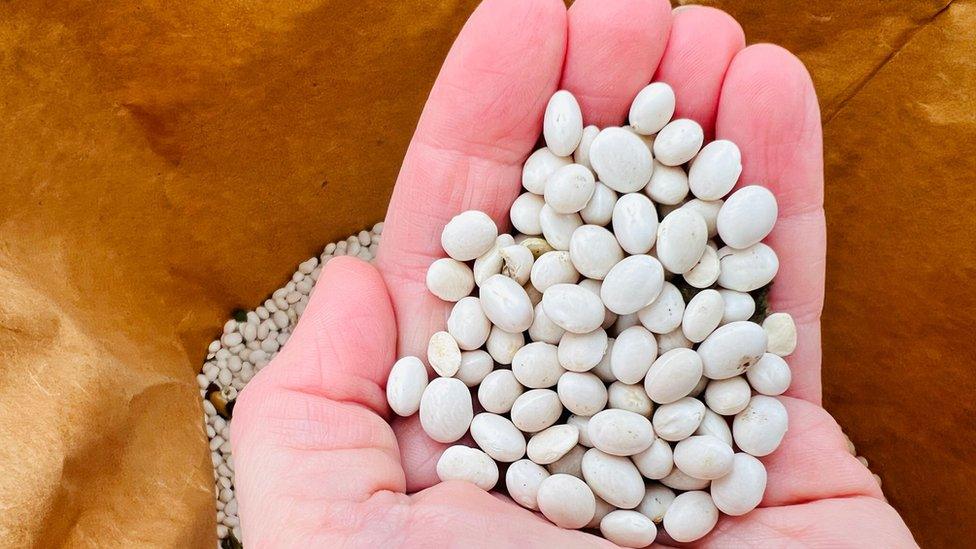
- Published16 June 2023
